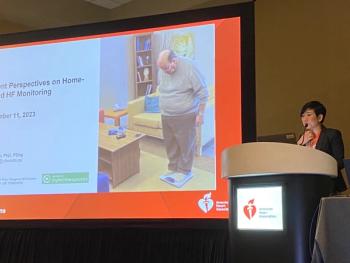
New Predictors of Length of Stay for Heart Failure Patients
Some factors found in previous investigations, such as stroke, were not significant in this study, while treatment interruption and severe tricuspid valve regurgitation were newly identified.
The prevalence of heart failure is projected to increase by 46% by 2030. Moreover, despite improved treatments and an actual reduction in mortality, the one-year mortality rate remains high, at approximately 30%.
Heart failure is expensive in both health and economic contexts. The American Heart Association has forecast that total direct medical costs of heart failure will increase from $21 billion in 2012 to $53 billion in 2030.Hospitalizations are the
In their
Of those, treatment interruption, higher NT-proBNP value and lower systolic BP at admission were the most important.
Patients were stratified into two groups: The first group’s length of stay was from one to eight days, and the second group’s length of stay was nine days or more. The longer length-of-stay group was significantly more likely to have reduced ejection fraction and NYHA class IV. Heart failure with preserved ejection fraction was more common in the shorter length-of-stay group, as was NYHA class II on admission. Most pre-existing comorbidities, such as dyslipidemia, hypertension, and chronic kidney disease, were similar in the groups, but Type 2 diabetes , iron deficiency anemia and previous strokes were more common in the longer length-of-stay group. Angiotensin II receptor blockers were more frequently prescribed in the first group; intravenous and oral diuretics were more common in the second group. Seven patients in the shorter length-of-stay group and eight in the longer length-of-stay group died while hospitalized.
Some variables that had been cited in earlier research, such as stroke, were not significant in this study, while treatment interruption and severe tricuspid valve regurgitation have not been documented before as predictors for longer length of stay in heart failure patients, the researchers say. They note that noncompliance with pharmacological treatment has been described as a frequent precipitating factor for heart failure.
Other research has found that discontinuing guidelines-directed medical therapy is associated with lower rates of survival in hospitalized heart failure patients. Tricuspid valve regurgitation is associated with elevated pulmonary artery pressures and increased overload in the major circulation circle.
“It is significant,” the researchers conclude, “that most of these predictors may be evaluated in an emergency room by a primary physician. After evaluating the patient’s medical history, vital signs and laboratory tests, the physician could predict the prognosis of a patient and make more effective decisions.”
Newsletter
Get the latest industry news, event updates, and more from Managed healthcare Executive.

























